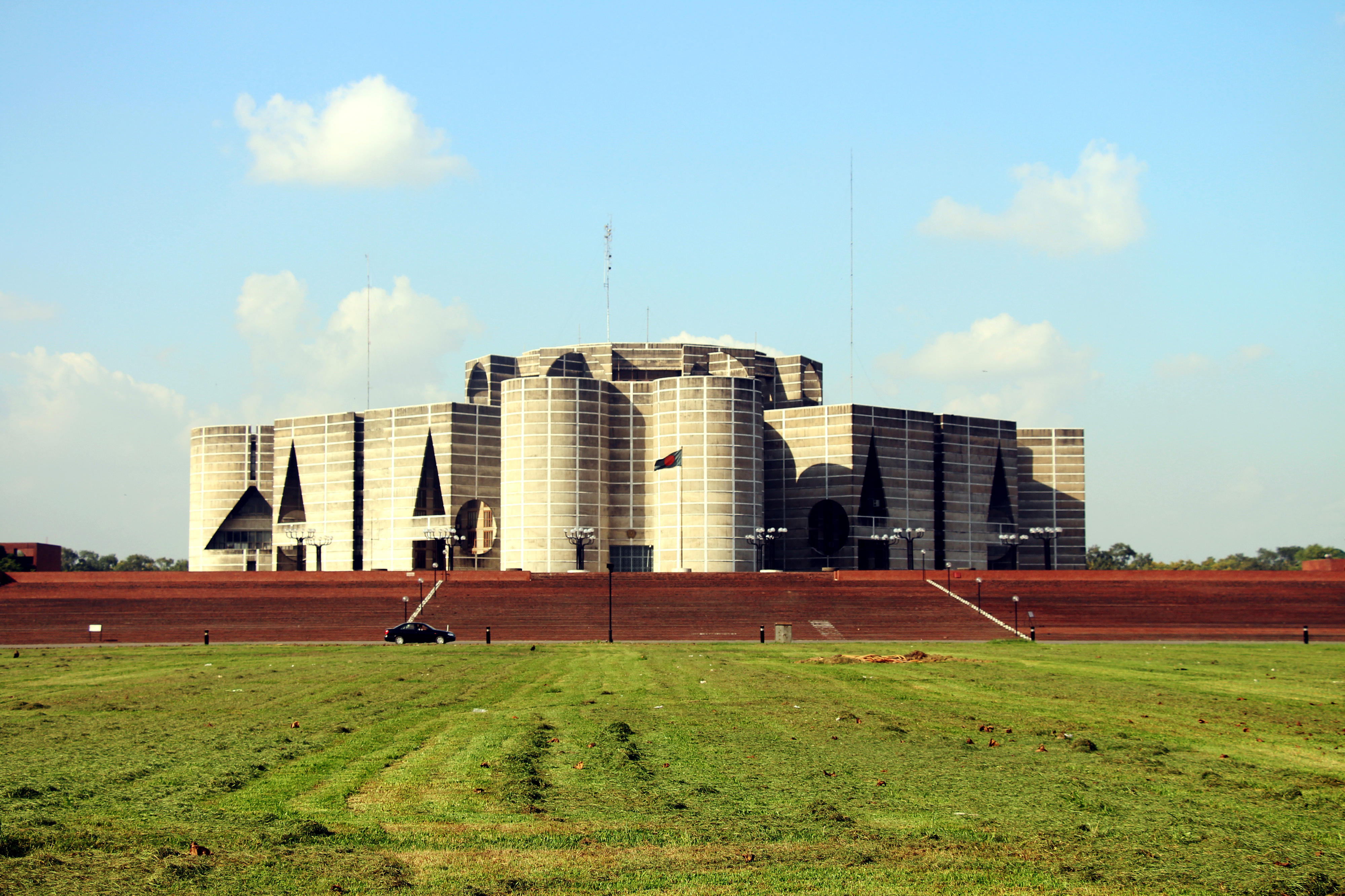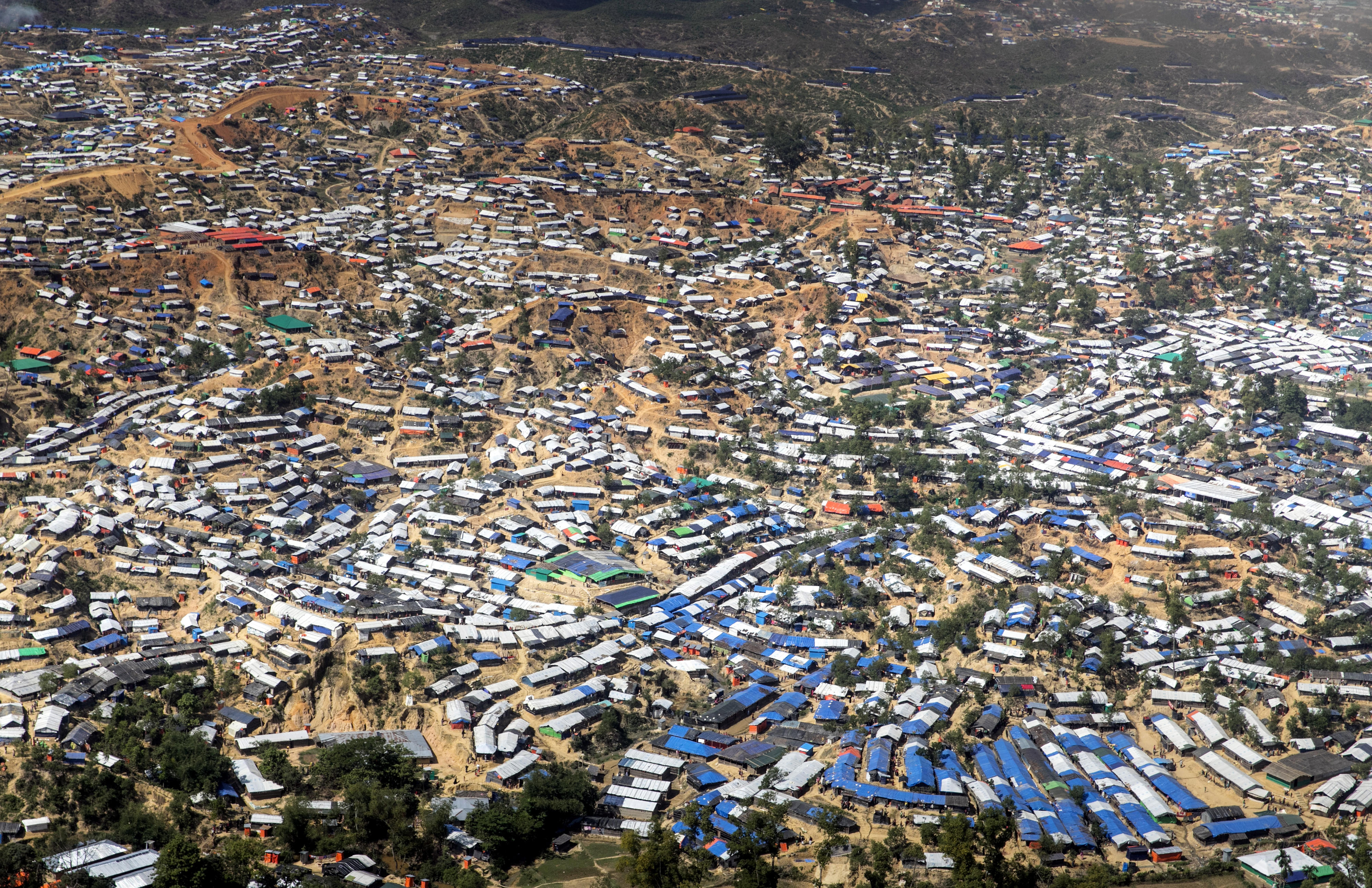Political situation Democratic structures under strain
Parliamentary building in Dhaka, Bangladesh
In the parliamentary elections held on 7 January 2024, the governing Awami League of Prime Minister Sheikh Hasina won 222 of the 298 seats in parliament. The biggest opposition party, the BNP, was very much weakened by the arrest of thousands of its supporters and boycotted the elections. The leader of the opposition and former prime minister Khaleda Zia of the BNP was found guilty of corruption and sentenced to more than ten years in prison; she is seriously ill and is under house arrest. In the run-up to the elections, which international observers judged to be free and fair, there were violent clashes which cost the lives of at least six people.
Following nationwide violent clashes in connection with student protests since mid-July, Prime Minister Hasina resigned in August 2024 and left Bangladesh. An interim government led by Professor Muhammad Yunus was sworn in in August 2024.
Human rights
The freedoms of assembly, of association, of opinion and of the press are all guaranteed in the constitution of Bangladesh. However, these freedoms are now subject to restrictions which allow for a very broad legal interpretation and which have severely reduced the scope for critical civil society voices. Non-governmental organisations and nature conservation groups are experiencing repressive action by state authorities more and more often. The 2024 World Press Freedom Index (External link) compiled by the non-governmental organisation Reporters Without Borders ranks Bangladesh 165th out of 180 countries evaluated. This is because, for example, Bangladesh has passed a law on information and communication technologies according to which expressing criticism of the government or of Islam in social networks is a punishable offence.
It is estimated that more than 2,200 people have been killed in Bangladesh in acts of political violence since 2009 – among them bloggers, journalists, homosexuals and avowed atheists. According to UN figures, around 2,000 journalists, bloggers and human rights activists have been arrested and charged under the Digital Security Act.
Corruption
Corruption and nepotism are widespread in Bangladesh. On the 2024 Corruption Perceptions Index (External link) published by Transparency International, Bangladesh is ranked 151st out of the 180 countries rated. The country's anti-corruption agency has neither sufficient staff nor financial resources, nor the political backing it needs, in order to be able to operate effectively.
The situation of the Rohingya people
Aerial photograph of the refugee camp Kutupalong in Bangladesh, where Rohingya who were expelled from Myanmar live.
Since 2017, several hundred thousand people belonging to the Muslim minority Rohingya have fled from neighbouring Myanmar to Bangladesh. Around 1.1 million Rohingya have sought refuge there (as at January 2024). Meeting the basic needs of the refugees is placing an enormous strain on Bangladesh in terms of the political and cultural challenges, its ability to provide financial and humanitarian assistance, and the burden on its infrastructure. Most Rohingya live in basic camps near the border in the district of Cox’s Bazar. By the middle of 2023, some 35,000 Rohingya had been resettled to Bhasan Char Island; all in all, some 100,000 people are to be resettled to improve the situation in the crowded camps of Cox’s Bazar. In January 2024, a devastating fire destroyed large parts of Ukhiya camp, leaving around 5,000 people, 1,500 of them children, without a roof over their heads.
Negotiations regarding the repatriation of the Rohingya people have so far been unsuccessful. According to the United Nations, there is currently still no prospect of the refugees being able to return safely to Myanmar, if they so wish. The Bangladesh government is calling on the international community to exert greater pressure on Myanmar, make more of an effort to bring about a solution to the crisis and provide greater support for the communities hosting the refugees. Germany has made around 300 million euros available since 2017 to provide aid for the refugees, with just under 200 million euros coming from the BMZ’s budget.
As at: 15/01/2024

